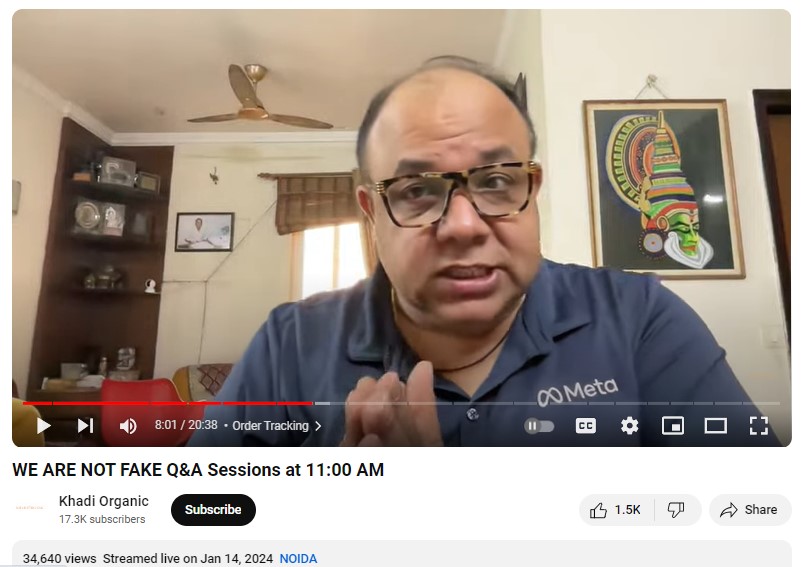In a stunning revelation of cybercrime exploiting religious faith, the Ayodhya Police have uncovered one of the city’s largest online scams — a ₹3.85 crore fraud executed under the guise of distributing prasad from the newly consecrated Ram Mandir. The elaborate scheme, meticulously orchestrated by a tech-savvy fraudster, preyed on the devotional fervour that followed the Pran Pratishtha (consecration ceremony) of Ram Lalla on January 22, 2024.

How the Scam Unfolded: Faith Exploited for Profit
The prime accused in this massive fraud is Ashish Singh, a native of Windsor Park, Indirapuram in Ghaziabad, currently residing in the United States. Posing as a professor from Northeastern University in Seattle, Singh tapped into the rising spiritual sentiment among Ram devotees by launching a fake website — khadiorganic.com — just weeks before the grand consecration event.
The fraudulent website offered:
-
"Free delivery" of Ram temple prasad
-
Ram Mandir replicas
-
Commemorative coins
However, users were asked to pay a “facilitation fee” —
-
₹51 for Indian residents
-
$11 for international devotees
Over 630,000 orders were placed through this portal between December 19, 2023, and January 12, 2024, from both domestic and overseas devotees who believed they were contributing to a legitimate spiritual cause.

Financial Trail: Massive Haul via Digital Gateways
To collect payments, Singh integrated popular Indian digital payment platforms, including:
-
Paytm
-
PhonePe
-
YES Bank
-
IDFC
-
MobiKwik
Through these channels, Singh managed to amass a total of ₹10.49 crore. A detailed breakdown of this amount shows:
-
₹3.85 crore was collected from prasad-related transactions alone
-
The remaining sum came from replica idols and commemorative coin sales

Red Flag Raised by Temple Trust
The scam came to light when the Shri Ram Janmbhoomi Teerth Kshetra Trust, responsible for managing the Ram Mandir, noticed suspicious online activity and transactions related to the prasad distribution. Sensing foul play, they immediately alerted the Ayodhya Cyber Crime Unit, prompting a swift investigation.
A criminal case was filed under the following legal provisions:
-
Section 420 of the Indian Penal Code (IPC) – Cheating and dishonestly inducing delivery of property
-
Section 66D of the Information Technology (IT) Act – Punishment for cheating by personation using computer resources
-
Section 12(3) of the Passport Act, 1967 – Offenses relating to misuse of passport documentation

Mastermind Nabbed: Arrest Upon Arrival in India
Confident in his ability to manage the fallout, Ashish Singh returned to India on January 13, 2024, and even made a visit to Ayodhya, possibly to mislead investigators or manipulate narratives on ground. However, cybercrime sleuths had already built a robust case.
Singh was arrested shortly after his arrival and identified as the mastermind behind the scam. During his arrest, the police recovered:
-
A laptop
-
Two Apple iPhones
-
₹13,970 in cash
-
A Washington state driving licence
-
A health card
-
Multiple US and Indian identity cards
-
Debit cards used in the transactions
Only $16 in foreign currency was found in his possession at the time.

Recovery Operations and Refund to Victims
In what is being termed the largest refund in a cyber fraud case in Uttar Pradesh, Ayodhya Police have so far returned ₹2.15 crore to 372,520 victims. The cyber recovery operation continues as authorities work to recover the remaining ₹1.70 crore.
Police Statement: A Scam Built on Faith
Ayodhya Senior Superintendent of Police (SSP) Gaurav Grover described the scam as one “built on faith,” lamenting the emotional manipulation used by the accused. “The accused exploited people’s religious sentiments. However, our team’s timely action ensured that faith wasn’t betrayed entirely,” he said.
In recognition of their efforts, the Ayodhya cybercrime team was rewarded ₹15,000 for their swift and effective action.
Key Takeaways: Lessons in Digital Vigilance
The Ram temple prasad scam serves as a cautionary tale in the digital age, where faith and trust are increasingly being targeted by tech-savvy fraudsters. Authorities have urged citizens to practice online caution, especially when dealing with religious or sentimental offerings.
“This case is a lesson in digital vigilance,” added SSP Grover. “Faith should never come at the cost of caution.”
|
Aspect |
Details |
|---|---|
|
Scam Amount |
₹3.85 crore (from prasad orders); ₹10.49 crore in total |
|
Mastermind |
Ashish Singh (Ghaziabad native, US resident) |
|
Fake Website |
khadiorganic.com |
|
Number of Victims |
Over 630,000 (372,520 refunded) |
|
Facilitation Fee |
₹51 (India), $11 (Overseas) |
|
Legal Charges |
IPC 420, IT Act 66D, Passport Act 12(3) |
|
Amount Refunded So Far |
₹2.15 crore |
|
Police Reward |
₹15,000 to cyber cell team |
Final Word
As technology advances, so do the tactics of cybercriminals. The Ram temple prasad scam is a stark reminder of how emotions and faith can be weaponised in the digital age. It underscores the urgent need for cyber-awareness, fact-checking, and verifying official sources, especially when it involves sacred or sentimental causes.
Stay alert. Stay safe. Faith should uplift — not deceive.
With inputs from agencies
Image Source: Multiple agencies
© Copyright 2025. All Rights Reserved Powered by Vygr Media.






















